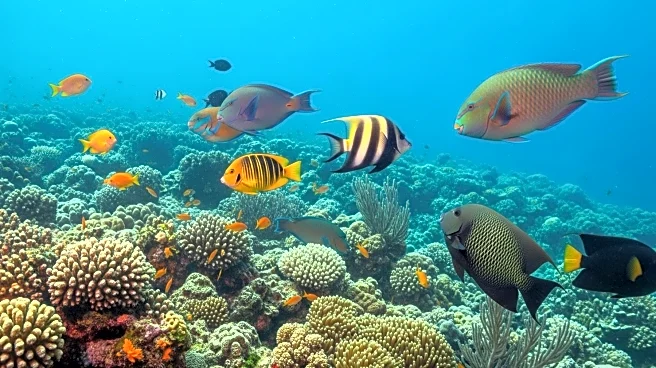What is the story about?
What's Happening?
South Australia has implemented a ban on fish-shaped soy sauce bottles as part of its ongoing efforts to reduce plastic waste. The state, known for its comprehensive measures against plastic pollution, has identified these small containers as particularly harmful to the environment. Officials argue that the bottles are easily lost, blown away, or washed into drains, where they can be mistaken by marine life for food. Despite being recyclable, their small size often prevents them from being properly sorted, leading to their accumulation in landfills or as environmental pollutants. The ban, effective from Monday, requires restaurants to use larger, refillable condiment containers or less harmful single-use alternatives. This initiative is part of a broader strategy that began in 2009, with South Australia being the first state to ban single-use plastic shopping bags. The state has since expanded its list of prohibited items, including plastic cutlery, straws, and various forms of takeout packaging.
Why It's Important?
The ban on fish-shaped soy sauce bottles highlights the growing global concern over plastic pollution and its impact on the environment. With 85% of single-use plastics ending up in landfills or mismanaged, according to U.N. reports, initiatives like South Australia's are crucial in addressing the plastic crisis. These measures not only aim to reduce environmental degradation but also protect marine life and human health from the adverse effects of plastic waste. The move reflects a broader trend of governments worldwide enacting consumer plastic bans, as seen in New Zealand and Nigeria. However, global efforts to create a binding plastic pollution treaty have stalled, with oil-producing countries opposing production limits. South Australia's actions may inspire other regions to adopt similar measures, contributing to a collective effort to mitigate plastic pollution.
What's Next?
South Australia plans to continue expanding its list of banned plastic items, with stickers on fresh produce next in line for prohibition. However, this change has been delayed due to concerns from producers about increased costs and supply chain disruptions. The state's Environment Protection Authority will enforce the ban, with penalties ranging from warnings to prosecution for breaches. As global talks on a plastic pollution treaty have collapsed, individual governments may need to take more decisive actions independently. The success of South Australia's measures could serve as a model for other regions, potentially leading to more widespread adoption of similar bans.
Beyond the Headlines
The ban on fish-shaped soy sauce bottles underscores the ethical and environmental responsibilities of governments and businesses in addressing plastic pollution. It raises questions about consumer habits and the role of industry in providing sustainable alternatives. The initiative also highlights the challenges of balancing environmental goals with economic considerations, as seen in the delayed ban on produce stickers. Long-term, such measures could drive innovation in packaging solutions and foster a cultural shift towards more sustainable consumption patterns.















